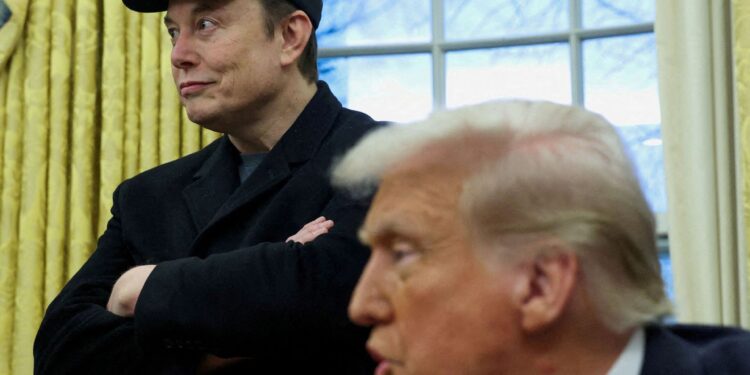9/3/2025–|Last update: 9/3/202508:53 PM (Mecca time)
A memorandum seen by Reuters showed that the Ministry of Clear Affairs will start a collective demobilization of its employees at the beginning of June.
The memo, which bears the date of the sixth of March, stated that the human resources management in the ministry must start reviewing the progress of operations with the aim of separating government employees.
The memorandum expected the completion of the review by June, and after that, “the Ministry of Affairs of the veterans will start taking measures to reduce the workforce at the level of its departments.”
In response to a request for comment, the Ministry of Affairs of the Veterans sent to Reuters a link to an opinion article recently written by Minister Dog Collins in The Hill newspaper, in which he defended reducing the workforce and describing this step as “comprehensive and thoughtful.”
Groups of veterans, democrats and some Republicans have expressed their concern about reducing the workforce in the ministry, which seeks to lay off more than 80,000 employees.
This memorandum comes at a time when US President Donald Trump is seeking to reduce government expenses, and it is considered that one of the most important conditions for achieving this disposal of the functional sag that many government sectors suffer from.
Last month, the Trump administration said that it had canceled two thousand jobs at the American Agency for International Development, while the Pentagon and the Federal Investigation Office (FBI) requested their teams not to respond to an email sent by Elon Musk asking the federal employees to justify their activities.
Trump signed a decree last January – the day when he returned to the White House – he orders to freeze US foreign aid for a period of 90 days until a full review is made.
Trump wrote in the big letters in a post on his “Truth Social” platform that “corruption has rarely seen before, closed!”
The American Agency for International Development is running health and emergency programs in about 120 countries, including the poorest regions of the world, and is seen as a vital component of the soft power of the United States in its struggle for influence with its competitors, including China.



